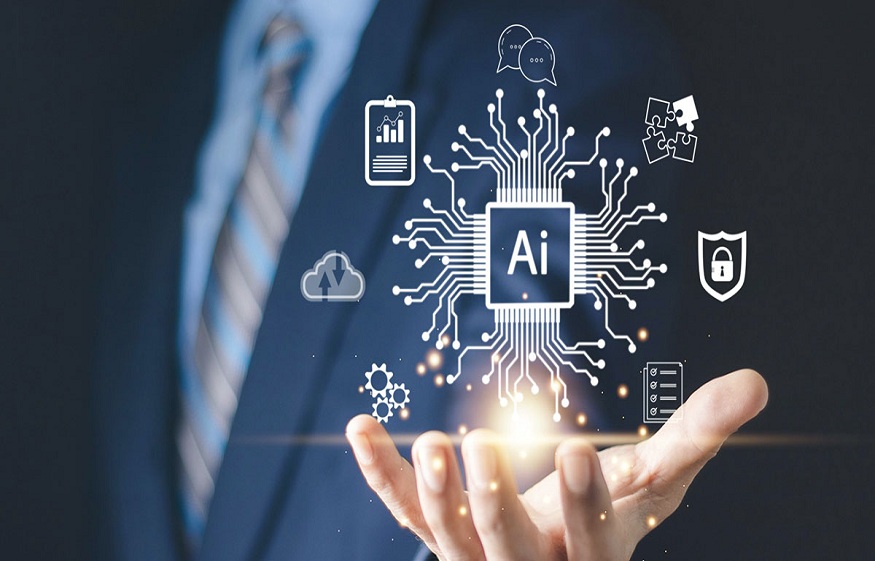How AI and Analytics Are Reshaping Business Decision-Making
In today’s fast-changing business world, success depends on making the right decisions quickly and confidently. Traditional decision-making relied heavily on instincts, experience, or slow-moving reports. But with the rise of artificial intelligence (AI) and advanced analytics, companies can now base their strategies on real-time facts, trends, and predictions.
From improving efficiency to spotting market opportunities, AI and analytics are driving a digital transformation that is changing how businesses operate at every level.
Let’s explore the ways they are reshaping business decision-making.
From Hours to Seconds: The Power of Real-Time Data
In the past, businesses often had to wait days or weeks to collect, process, and review data. This delay resulted in missing timely opportunities or reacting too late to problems.
With AI-powered tools, data from multiple sources, such as sales transactions, customer interactions, website activity, and social media, is processed instantly. Decision-makers can view up-to-the-minute dashboards, identify sudden changes, and act immediately.
For example, an e-commerce store can monitor real-time purchasing trends during a sale and quickly adjust discounts or restock popular items before they run out.
Spotting Hidden Trends Before They Go Mainstream
AI excels at spotting patterns that humans might overlook. By analysing huge amounts of data, AI systems can identify recurring trends, relationships, and anomalies.
This is especially useful in fields like marketing, where recognising patterns in customer behaviour helps businesses predict what products or services will appeal to specific groups. In manufacturing, AI can detect unusual equipment performance patterns, signalling potential issues before they become serious breakdowns.
Pattern recognition enables companies to make informed choices not just based on current numbers but on deeper insights into why those numbers occur.
When AI Becomes Your Smart Decision-Maker
AI doesn’t just analyse data; it can also recommend or even execute decisions. Automated decision support systems provide suggestions based on business goals, past results, and live market conditions.
For instance, in supply chain management, AI can automatically decide the best routes for deliveries based on traffic, weather, and fuel costs. In customer service, AI chatbots can resolve common queries instantly, freeing human agents to handle complex issues.
By automating routine decision-making, businesses can save time, reduce errors, and let their teams focus on strategic thinking.
Predicting Tomorrow’s Market Today
One of the most powerful benefits of AI and analytics is the ability to predict future trends with high accuracy. Predictive analytics uses historical data, statistical models, and machine learning to forecast likely outcomes.
This can help businesses anticipate customer demand, prepare for seasonal changes, and reduce risks. For example, a retailer can predict which products will be in high demand during the holiday season and adjust inventory accordingly.
When companies can see what’s likely to happen, they can plan smarter and avoid costly surprises.
Efficiency Unlocked: Doing More with Less
AI and analytics streamline operations by automating repetitive tasks, optimising workflows, and reducing waste. This efficiency means businesses can achieve more with fewer resources, ultimately improving profitability.
For example:
- In logistics, AI can optimise warehouse layouts to speed up order fulfilment.
- In finance, analytics can automate invoice processing and detect errors instantly.
- In manufacturing, AI can schedule equipment maintenance only when needed, avoiding unnecessary downtime.
When everyday operations run smoothly, leaders can focus on innovation and growth.
Business Strategies as Unique as Your Customers
Every customer is unique, and AI helps businesses recognise and respond to that individuality. Using data from purchase history, browsing habits, and social media activity, AI can create highly personalised experiences.
For instance, streaming services like Netflix recommend shows based on viewing patterns, while online retailers suggest products tailored to individual tastes. Even in B2B sectors, companies can design customised proposals based on each client’s specific needs.
This level of personalisation not only improves customer satisfaction but also strengthens loyalty, leading to long-term business success.
Stopping Risks Before They Become Problems
In industries like banking, insurance, and e-commerce, risk and fraud are constant challenges. AI-powered systems can detect suspicious activity within seconds, protecting both the business and its customers.
For example, credit card companies use AI to flag unusual transactions, such as large purchases in a foreign country, before they cause financial loss. Similarly, insurance companies can identify false claims by spotting irregular patterns in submitted data.
By catching risks early, businesses can avoid costly damage to their finances and reputation.
Turning Data into Your Competitive Superpower
AI and analytics are not just tools; they are helping build a data-driven culture within organisations. When decisions are based on facts rather than assumptions, teams across departments become more aligned and confident in their choices.
Companies embracing this shift are gaining a strong competitive edge. They can adapt faster to market changes, respond more effectively to customer needs, and innovate ahead of rivals. In the era of digital transformation, this agility can mean the difference between leading the market and falling behind.
Final Thoughts
AI and analytics are turning decision-making from a slow, reactive process into a fast, proactive one. Businesses can now understand what is happening in real time, see what’s likely to happen next, and act with greater confidence.As more companies adopt a data-driven approach, decision-making will become increasingly sophisticated—reshaping the future of business.

